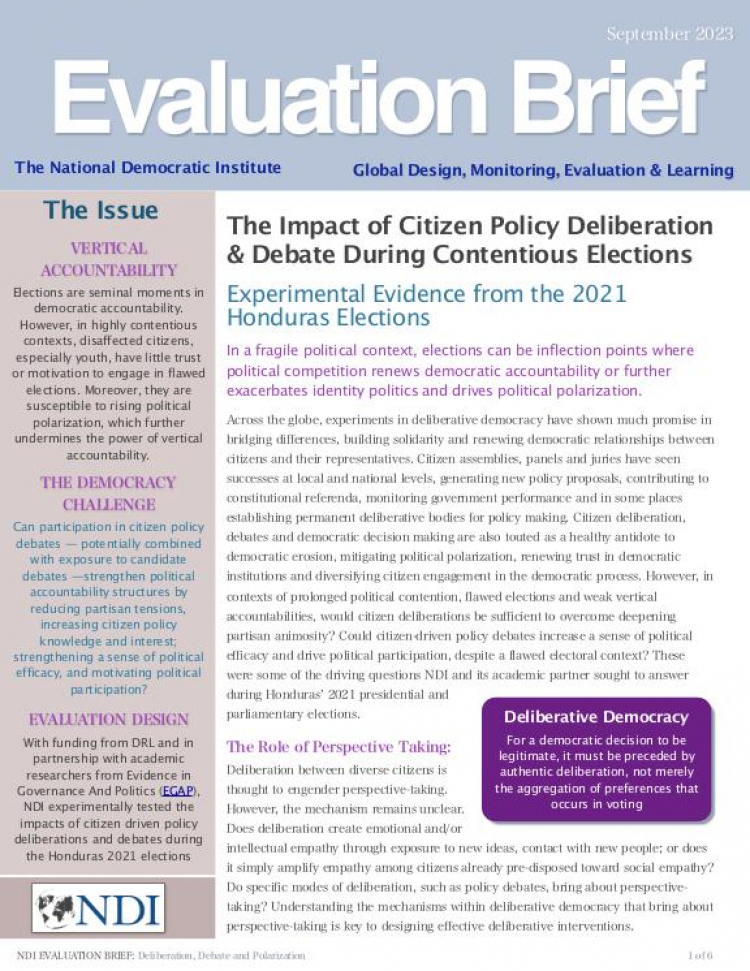The Impacts of Citizen Policy Deliberation and Debate During Contentious Elections
Elections are seminal moments in democratic accountability. However, in highly contentious contexts, disaffected citizens, especially youth, have little trust or motivation to engage in flawed elections and are susceptible to rising political polarization. At the same time, deliberative democracy has been held up as a healthy antidote to this kind of democratic erosion. Yet it is not always clear what mechanism within deliberations reduces tensions and increases political participation of citizens in a polarized context. Our Global Design, Monitoring, Evaluation, and Learning (G-DMEL) team, in partnership with NDI’s Honduras program, ran an experiment to better understand how deliberative democratic processes may support vertical accountability during contentious elections and reduce partisan tensions. With funding from the US State Department, and in partnership with an academic researcher from Evidence in Governance And Politics (EGAP), NDI experimentally tested the impacts of citizen policy deliberations and debates during the Honduras 2021 elections. The findings reveal that citizen policy deliberations alone do not reduce political animus in a contentious context. However, active perspective-taking — arguing for policy solutions that are not one’s own during citizen debates — do create the socio-political empathy necessary to reduce partisan animus in a contentious political environment. These effects also endured after the elections were over. NDI believes these durable impacts have important implications for designing civic and voter education programs aimed at mobilizing active and informed citizens who can work together around common cause, despite contentious political contexts.
